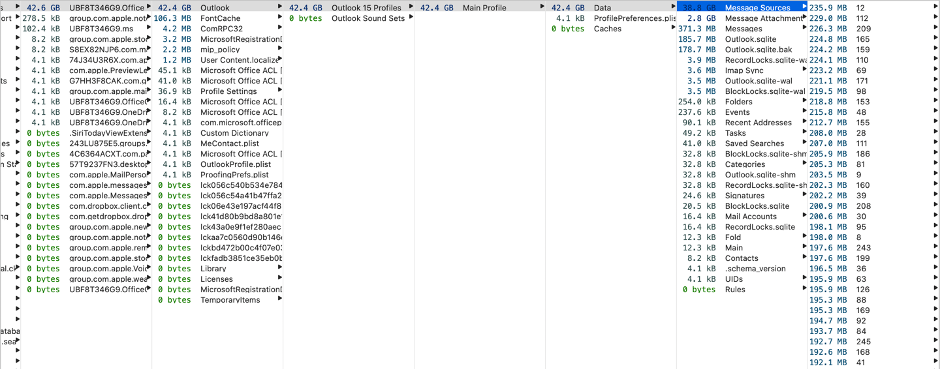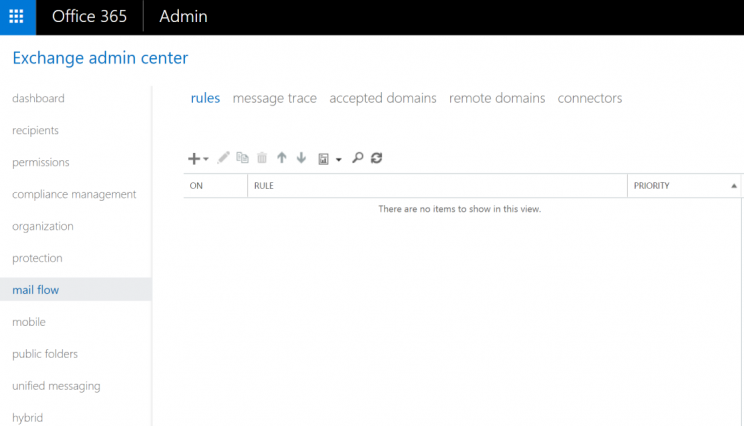Library Group Containers Outlook

 The logs for Outlook are… Interesting… Diagnostics are difficult without logs. They used to be at ~/Library/Containers/com.microsoft.outlook/ Data/Library/Logs/ or To enable logs, open Outlook and then click on Window and then click Sync Errors. From there, click on the cogwheel and then check the box for “Turn on logging for troubleshooting” Now go ahead and quit Outlook and open it again. When prompted, click “Leave Logging On” and then when you get errors, open the logs. Once enabled, you’ll see logs at ~/Library/Group Containers/UBF8T346G9.Office/OfficeLogging/. You can edit a maximum size for the log files using defaults to send a EWSMaxLogLength key to com.microsoft.Outlook using the following command:
The logs for Outlook are… Interesting… Diagnostics are difficult without logs. They used to be at ~/Library/Containers/com.microsoft.outlook/ Data/Library/Logs/ or To enable logs, open Outlook and then click on Window and then click Sync Errors. From there, click on the cogwheel and then check the box for “Turn on logging for troubleshooting” Now go ahead and quit Outlook and open it again. When prompted, click “Leave Logging On” and then when you get errors, open the logs. Once enabled, you’ll see logs at ~/Library/Group Containers/UBF8T346G9.Office/OfficeLogging/. You can edit a maximum size for the log files using defaults to send a EWSMaxLogLength key to com.microsoft.Outlook using the following command: defaults write ~/Library/Preferences/com.microsoft.Outlook EWSMaxLogLength 64Library Group Containers Outlook Web
Library/Group Containers/UBF8T346G9.Office/Outlook I am using MacBook Pro, when I have downloaded the Apple update it said there is no enough space. So I ran omni disk sweeper to identify large files where I find UBF8T346G9. Microsoft Outlook saves your email messages, calendar, tasks, and other items in either an Outlook for Windows Data File (.pst) or an Outlook for Mac Data File (.olm). This article guides you through the process of recovering your Outlook data by restoring your Outlook Data File with the Code42 app. The cause of this issue might be that the way how Outlook for Mac stores attachments is different from Outlook for Windows. There is a workaround by using the Download headers only feature in Outlook 2016 for Mac if you are using IMAP account. Please check this article to see the detailed steps: Advanced IMAP account settings for Outlook 2016.